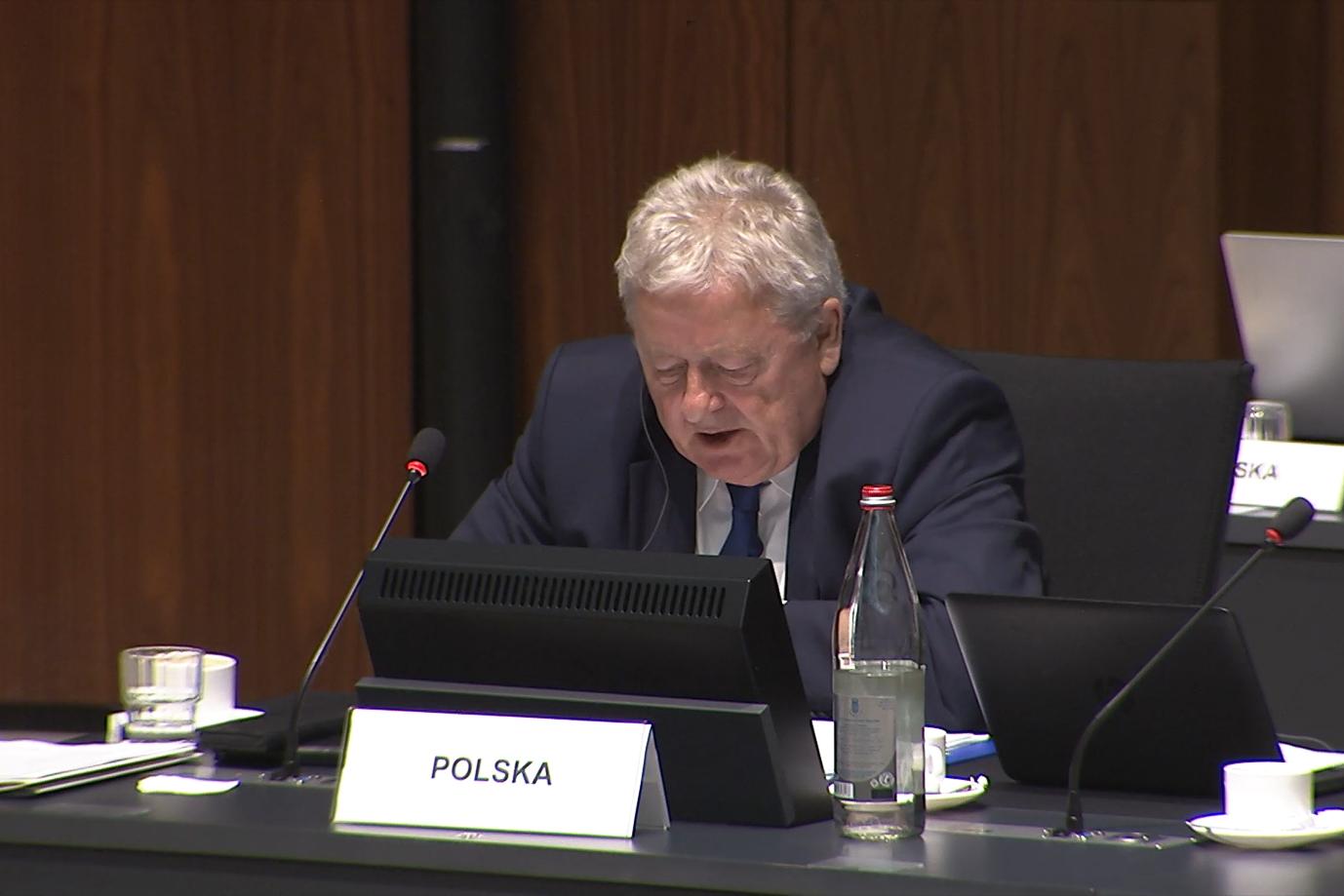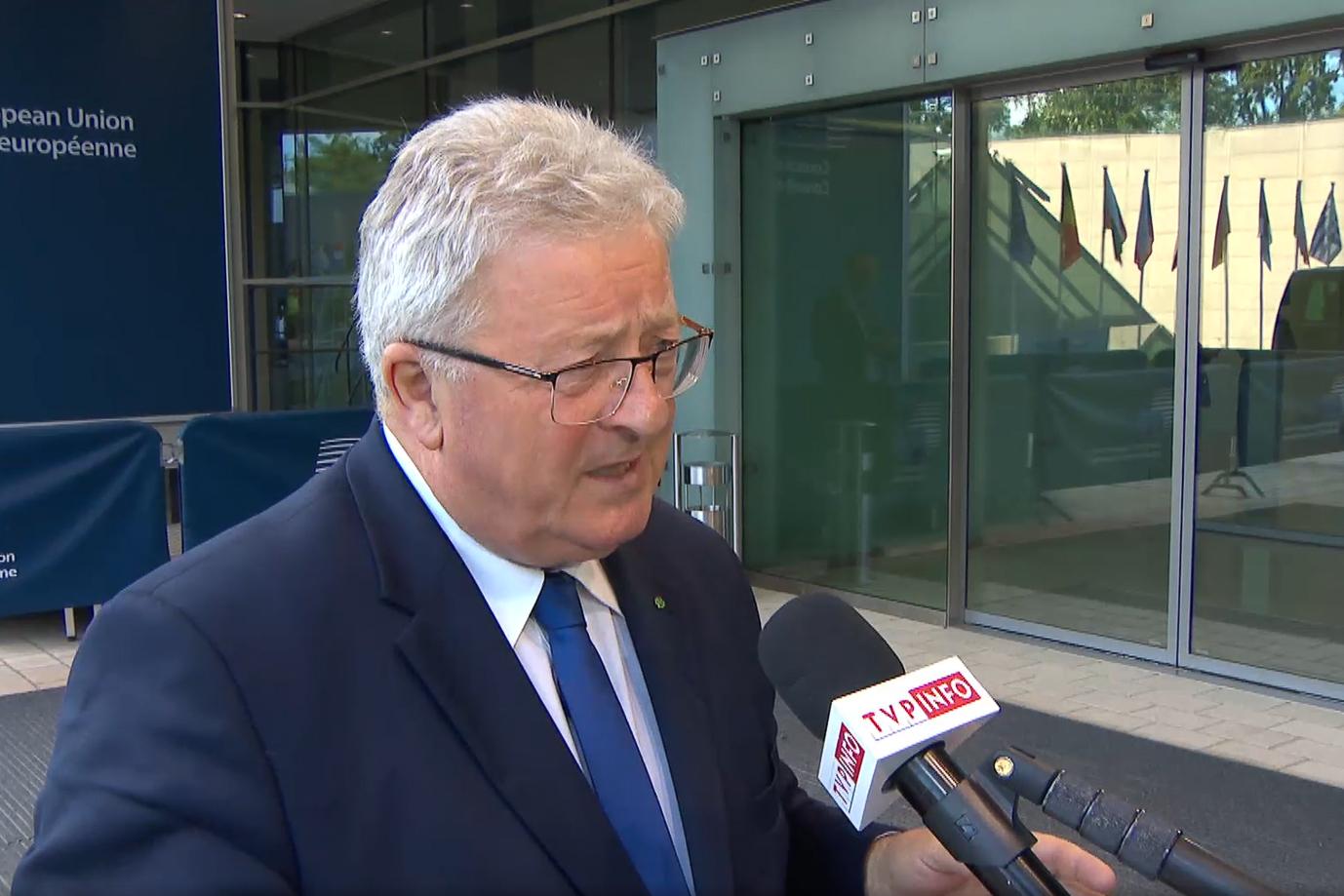AGRIFISH Council – talks on the future of agriculture and fisheries in the EU
25.06.2024
The meeting of the Agriculture and Fisheries Council (AGRIFISH) was held on 24 June this year in Luxembourg. The Polish delegation was headed by the Minister of Agriculture and Rural Development Czesław Siekierski. The key areas of discussions were the conclusions on the future of agriculture in the European Union (EU) and the Communication from the European Commission on the state of play of the sustainable fisheries in the EU.

Future of agriculture in the EU
The Belgian Presidency presented the Council conclusions on the future of agriculture in the EU. They were supported by 26 Member States and due to the Romania’s objective – adopted as the Presidency conclusions.
They emphasize the key role of the agricultural sector in ensuring food security and strategic autonomy. The Conclusions focus primarily on a strong and competitive agricultural sector in the EU, innovation and cooperation, simplifications, support addressed to young and new farmers as well as resilience to climate change.
Position of Poland
Minister Czesław Siekierski emphasized that the Polish farmers expect fair and equal treatment and uniform rules – also in the area of stabilising the farmers’ income.
– Thanks to pressure from among other Poland, the provisions on equitable distribution of aid under the Common Agricultural Policy (CAP), in particular of direct payments and the provisions on rural areas, were introduced to the content of the conclusions - stressed the head of the Polish ministry of agriculture.
In addition, the text submitted to the Council took into account the other issues postulated by Poland, for example addressing the key role of agriculture in ensuring security in Europe or emphasizing the importance of the other EU policies for sustainable agriculture and rural areas.
– We need to remember about the persisting development differences of rural areas and agriculture between the individual states. These differences must be taken into account and mitigated during the future discussions on sharing the CAP funds allocated to development of rural areas – said Minister Czesław Siekierski.
According to the head of the ministry of agriculture, the Presidency conclusions form an important signal for the European institutions to take greater care of the European agriculture.
– It is a good basis to work on the future shape of the Common Agricultural Policy and other EU policies. The conclusions emphasize also the role of agriculture in the EU economy and society as a whole. This is why Poland supports them – stressed Minister Siekierski.
Temporary crisis framework
The Bulgarian and Romanian Delegations drew up the note on abolishing or increasing the individual limit for an undertaking active in the primary production of agricultural products under the state aid temporary and transition crisis framework. Poland joined this document.
Position of Poland
The Polish Minister of Agriculture and Rural Development informed that implementation of the aid schemes in Poland on the basis of temporary crisis framework within the last two years provided the additional form of support to many thousands of agricultural holdings.
– Thanks to the extension of temporary crisis framework by 31 December this year, these funds will be still available to the agricultural producers – said Minister Czesław Siekierski.
The Minister stressed also that the limit of aid available to the agricultural producers who have already reached the ceiling should be increased.
– Allocation of greater amounts of funds to the agricultural production may contribute to better stabilisation of the food market in Europe – assured Minister Siekierski.
Damage caused by adverse weather conditions
The Croatian Delegation presented information on significant damage to agricultural areas caused by adverse weather conditions.
Position of Poland
Minister Siekierski emphasized that in recent years Poland has been also facing the increasing adverse weather conditions which cause damage to agricultural crops.
– In this year, the droughts, storms, frosts and hailstorms were present in a vast area of our country. This had a major negative impact on crops in orchards and vineyards. Losses are still estimated and there is a huge risk that a part of the farmers will cease production. We should support the affected producers as soon as possible – said Minister Czesław Siekierski.
The Polish minister of agriculture informed also that he will apply for aid to the Commission under Article 221 of the CMO Regulation in near future.
– The European Commission should plan the necessary resources to mitigate and prevent the effects of climate change in future – added Minister Siekierski.
Sustainable fisheries in the EU
The EU ministers discussed the EC Communication on the state of play of sustainable fisheries in the EU, which contains the guidelines on fishing opportunities for 2025.
Position of Poland
Minister Siekierski pointed out that taking care of the Baltic Sea ecosystem is currently a priority and stated at the same time stated that failure to restore this ecosystem will pose a threat to the Baltic fisheries.
– No possibilities of directed fishery of western herring, salmon and both stocks of cod in the Baltic Sea have a direct and negative impact on the economic condition of people involved in fisheries – reminded the head of the Polish ministry of agriculture.
Minister Czesław Siekierski stressed that Poland aims at ensuring the opportunity to continue their fishery activities in the Baltic Sea region to the fishermen.
– This will require taking further actions which will lead to improvement of the fish stocks condition in the Baltic Sea with consideration to the socio-economic aspect – added the head of the Polish Delegation.
Impact of the Russian activities on the Baltic Sea and EU single market
The Delegations of Lithuania, Estonia, Latvia and Sweden presented the note on the impact of the Russian activities on the Baltic Sea and EU single market.
Position of Poland
Minister Siekierski emphasized that the fisheries activity of Russia in the Baltic Sea region poses a major threat to the Baltic fish stocks.
– We need to remember that the Russian fisheries do not respect the scientific advice of the International Council for the Exploration of the Sea and exploits the eastern cod stocks – said Minister Siekierski.
The Minister added that the decisions taken by the European Union aiming at restoration of resources may be ineffective due to Russian fishery activities.
– I am aware that the EU has no impact on the operation of the Russian fisheries, in particular in the existing international situation. However we must continue to emphasize that we cannot accept the way of exploitation of the Baltic fish stocks by Russia – stressed the head of the Polish delegation.
Minister Czesław Siekierski added at the same time that further restrictions in the area of import of fisheries products from Russia should be introduced with great care and upon prior consultations with the sector.
– We cannot forget that import from this direction plays a significant role in the operation of a major part of the European fish processing sector – stressed Minister Siekierski.
Meetings in the margins of the Council
In the margins of the AGRIFISH Council, the Minister of Agriculture and Rural Development Czesław Siekierski held the bilateral meeting with the Belgian Presidency on the draft regulation on the new genome techniques.
Minister Siekierski participated also in the meeting of the ministers of agriculture of the Visegrad Group (GV4). During the meeting, the Czech Republic, currently presiding the GV4, summarised the works of the Visegrad Group, while Poland presented the priorities of the Polish Presidency for the upcoming year.


